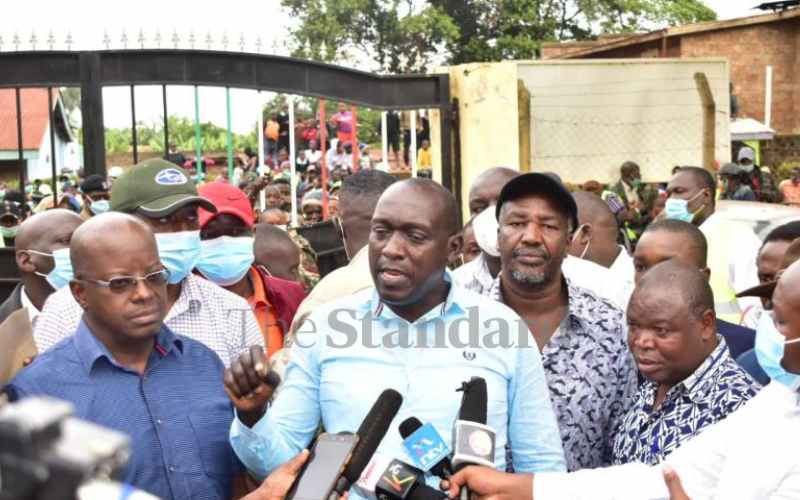×
The Standard e-Paper
Smart Minds Choose Us

Kiambaa Jubilee aspirant Kariri Njama when he presented his nominations papers to IEBC in Karuri, Kiambaa constituency. [Fidelis Kabunyi, Standard]
Cry, the beloved country, for the unborn child that is the inheritor of our fear. Let him not love the earth too deeply. Let him not laugh too gladly when the water runs through his fingers, nor stand too silent when the setting sun makes red the veld with fire.